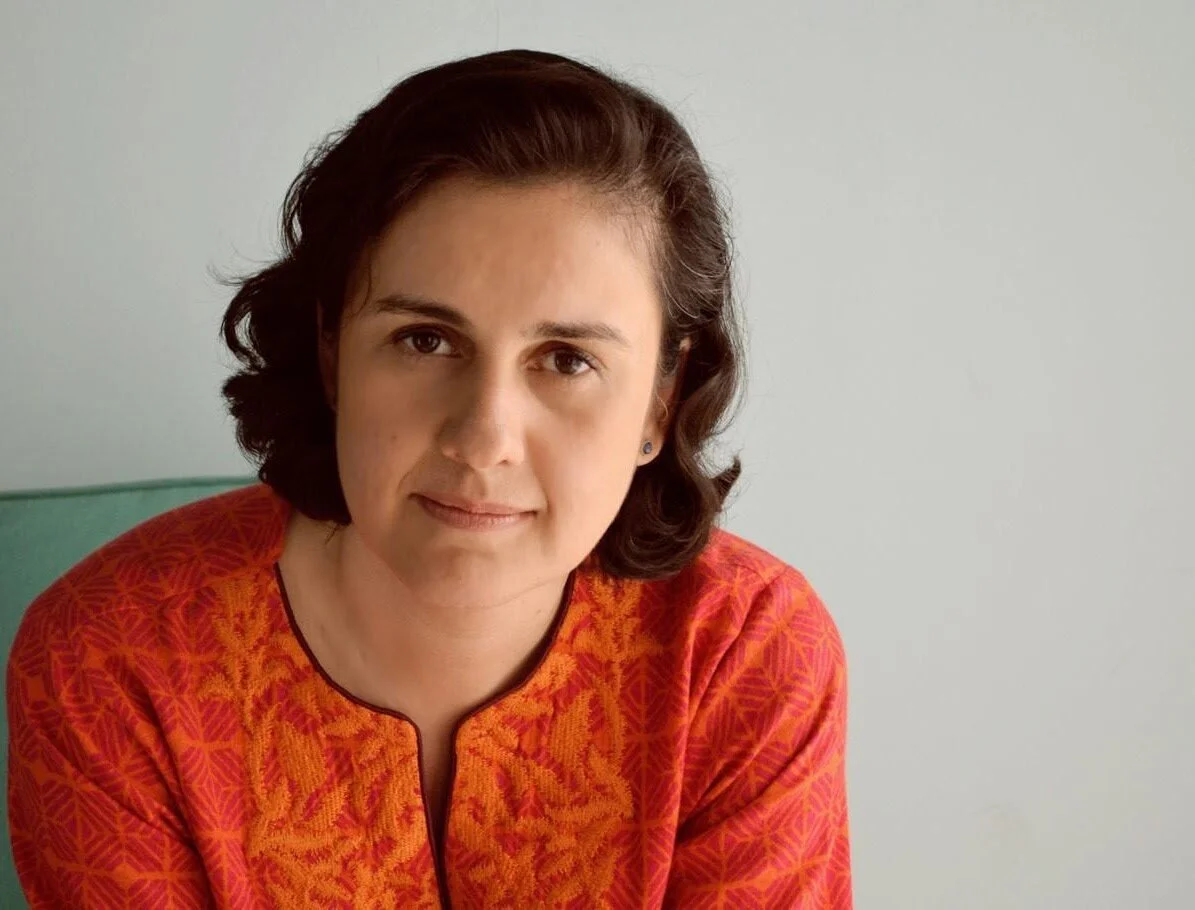
Home Fire
By Kamila Shamsie
Home Fire
-
Kamila Shamsie was born in Karachi, Pakistan, to a family of literary intellectuals. She is the daughter of the literary critic and writer Muneeza Shamsie, the niece of Indian novelist Attia Hosain, and the granddaughter of the memoirist Begum Jahanara Habibullah. She is now a dual national of the UK and Pakistan and identifies as a Muslim.
Home Fire was written in response to the rise of ISIS and radical jihadist doctrine, a war against the enemies of Islam. In 2014, ISIS gained global dominance, drove Iraqi government forces out of key cities, and established Sharia Law. Stories of British Muslims leaving their families to join ISIS populated new outlets and social media platforms.
Home Fire won the Women's Prize for Fiction 2018. It was also longlisted for the Man Booker Prize 2017 and shortlisted for the DSC Prize for South Asian Literature 2018. Home Fire was adapted from the original Greek play Antigone, written in the 5th Century by the philosopher Socrates. Shamsie, however, shapes Home Fire as a narrative instead of a play. Home Fire inhabits the literary tradition of Writing Back: the transformation of a classic or western piece using the perspective of those who were negatively Othered by colonial society.
-
The novel opens with Isma Pasha, a 28-year-old Muslim woman, being interrogated at Heathrow Airport, having been detained because of the “background of her family.” Isma’s father was a jihadi who was captured and died on his way to Guantanamo Bay. Moreover, Isma’s mother died when she was 19, leaving Isma to raise her younger siblings, twins Aneeka and Parvaiz. Parvaiz is another reason for Isma’s detention. Before Isma left to go to the United States, Parvaiz left London to join ISIS in Syria. Isma’s detention causes her to miss her flight, but she finally makes it to Massachusetts, where she begins her studies and stays in touch with Aneeka through Skype. Isma meets Eamonn Lone in a coffee shop. He is the son of the British Home Secretary, Karamat Lone, whom Isma vehemently dislikes. Despite this difference, the two eventually become friends. Later, however, Isma tells Eamonn that she disagrees with his father, and he becomes offended and no longer wishes to stay friends. Isma explains that, when her father passed away, her family asked for information about his burial and went to Karamat for help, as he was a British Muslim like the Pashas; however, Karamat turned them away and refused to disclose any information. After hearing this, Eamonn and Isma reconcile, but Eamonn returns to London. Once in London, Eamonn goes to see Isma’s aunt and meets Aneeka, whom he quickly falls for. The two engage in a romantic relationship, but Aneeka avoids mentioning Parvaiz in front of Eamonn. Eventually, Eamonn proposes to Aneeka, and she finally tells him the truth about Parvaiz, asking Eamonn to help bring him home.
At the time, Parvaiz is working in the media wing for ISIS. After seeing the horrors of the Islamic State, however, Parvaiz regrets his decision. He realizes his brainwashing, and he wishes to return home. Unfortunately, when Parvaiz joins ISIS, they confiscate his passport, so he has no means to return to London. As a result, he must turn to Aneeka for help. Parvaiz manages to meet his twin in Istanbul while pretending to pick up recruits. Parvaiz finds Istanbul’s British consulate, but his former ISIS recruiter shoots him before Pavaiz obtains a new passport. In London, the British media largely publicizes Parvaiz’s death, and Karamat bans Parvaiz’s body from returning to British soil. Instead, Istanbul officials send the body back to Pakistan. Aneeka, filled with grief, goes to Pakistan and insists that the British government repatriate Paraiz’s body so that he may have a proper burial. Eamonn denounces Karamat the next day, and he flies to Pakistan to see Aneeka. He finds Aneeka in a park with Parvaiz’s decaying body, where two men ambush Eamonn by strapping a belt of explosives onto his waist. The novel closes with Aneeka running to Eamonn, embracing him one last time before they both perish in the blast.
-
Written as a modern re-telling of Sophocle’s Antigone, Home Fire is a story about honor, devotion, and familial ties. The novel takes place during Britain’s war on terror, during a time of great national insecurity and conflict. Despite their British allegiance and citizenship, the Pasha sisters experience racism and scrutiny because of their brother and father’s affiliation with ISIS as well as their cultural identity. Shamsie’s Muslim, Pakastani, and British identities allow her to relate to the struggles of each character. Given the concerns over national security following the September 11th terrorist attacks, it is likely Shamsie uses her personal experiences as a Pakistani-British citizen to craft the lives of each character. Specifically, the novel focuses on the war on terror, racial profiling, and the intersection of Islamic culture and femininity.
In Home Fire, Aneeka mirrors Antigone as she fights for the return of her brother’s body. Much like in our modern world, terrorism is a sensitive topic for British citizens in the novel; so, when Parvaiz dies, the media and citizens alike are reluctant to help Aneeka honor a former terrorist. In Antigone, however, readers are more inclined to support Antigone because of her devotion to the gods and her family. When authors strip politics from the plotline and create stories of humanity rather than nationalism, it is easier for the audience to find sympathy that doesn’t conflict with their beliefs. Otherwise, cognitive dissonance strikes the audience and challenges their compassion. By drawing parallels between the two characters, Shamsie encourages readers to empathize with Aneeka and her family.
Home Fire is an excellent example of global literature, as it tells an old Western story through a new cultural perspective. The novel continually explores the hardships of dualism through the exploration of citizenship, national identity, and political ideology. In many ways, the characters in Home Fire face similar challenges to the narrator in The Sympathizer. In The Sympathizer, the narrator battles his two national identities, much like the Pasha family. The Sympathizer claims that his duality gives him a “second-sight,” allowing him to see multiple peoples’ perspectives regardless of ethnicity or political affiliation. In theory, Pakistani-British also have a “second-sight,” which helps to eliminate the danger of a “single story” or perspective in Home Fire. While the Sympathizer ultimately realizes that all countries and political groups are plagued with injustice and bias, Eamonn decides that while terrorism is horrible, not allowing a British family to honor their dead is also immoral.
Edward Said’s Orientalism plays an important analytical role in this text. In the novel, Aneeka has sex with Eamonn in a white hijab. In Western culture, white typically indicates purity, and in Islamic culture, a hijab is meant to maintain modesty and privacy from unrelated males. For Aneeka, however, the hijab serves mostly as a symbol of her Muslim identity and doesn’t restrict her from pre-marital sex or interacting with men outside of her immediate family. In the novel, readers discover the negative stereotypes surrounding the hijab, which describes the veil as oppressive rather than empowering. Through Aneeka and her actions, however, Shamsie rejects these stereotypes surrounding Islamic culture and femininity.
-
How does Shamise compare Isma and Aneeka’s expression of femininity? How might this relate to their interpretations of gender expression within Islam?
What are the parallels between Parvaiz and Eamonn’s relationship with their fathers?
How is the hijab’s function of protecting a woman’s purity and warding off unwanted male attention apparent in Aneeka and Eamonn’s sexual relationship?
What is Karamat Lone’s relationship between his religious ideals and his responsibility as a politician to represent Muslim practitioners?
The British World War I song “Keep the Home Fires Burning” was used as a rallying cry for British patriotism. How might we see those ideas reflected in Home Fire?
Why is it important that Home Fire is a retelling of Antigone, set in 5th century Greece? How does this impact our perspective on the right to citizenship now?
Why is Eammon so public about denouncing his father?
Additional Resouces
This guide deftly brought to you by….
Uma Misha (‘22)
I am a HUGE TV and movie watcher, but I also love reading sci-fi and fantasy books. I get a lot of joy from those forms of media, and they also impact my life perspectives.
Sammie Dostart-Meers (‘22)
From a young age, my family and I have always discussed politics at the dinner table. So far I have gotten to campaign for four presidential candidates and two of my biggest extracurriculars have to do with foreign policy and engaging women in politics.
Charlie Herrin (‘22)
Hello, my name is Charlie! I have a very eccentric dog named Tibi and am currently binge watching Modern Family. Enjoy!






